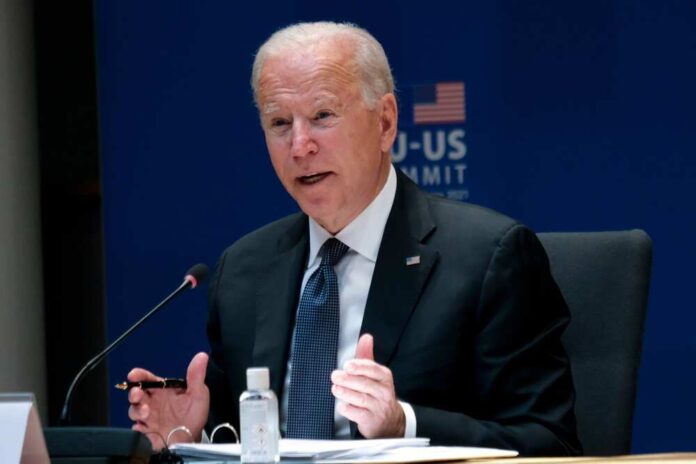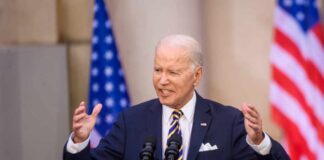
Joe Biden’s potential use of the 14th Amendment to unilaterally raise the U.S. debt ceiling without Congressional approval is meeting with strong objections from legal experts and Republican lawmakers. These critics warn that the move could bring impeachment proceedings and a possible sovereign debt default.
Biden’s proposition hinges on the 14th Amendment’s clause: “The validity of the public debt of the United States, authorized by law, including debts incurred for payment of pensions and bounties for services in suppressing insurrection or rebellion, shall not be questioned.” He suggests that this language allows him to pay existing U.S. debts by borrowing more, even without Congressional approval.
Good for Republicans, bad for the Republic. https://t.co/cAFyiN2Pag
— Mike Lee (@BasedMikeLee) May 10, 2023
Critics, however, argue that Biden is misinterpreting the Constitution. Richard Epstein, Laurence A. Tisch professor of law at New York University, is clear: “The president cannot unilaterally do this unless he wants to risk an impeachable offense.” Epstein suggests that the phrase “authorized by law” means any debt issuance requires Congressional approval. Andrew McCarthy of the National Review Institute echoes this, stating that invoking the 14th Amendment “would be the most unconstitutional move of his presidency.”
Rep. Lauren Boebert (R-CO) has also voiced strong objections to the idea, emphasizing that the power of the purse belongs to Congress, not the President. Treasury Secretary Janet Yellen agrees that invoking the amendment would lead to a “constitutional crisis.”
Despite this, Biden cites Harvard law professor Laurence Tribe as an authority supporting his stance. Tribe, a known Democrat supporter and promoter of leftist legal theories, insists that the U.S. must pay all its debts, even if that requires borrowing beyond Congress-approved limits. Epstein dismisses Tribe’s viewpoint as a “crazy position” based on necessity and political convenience rather than the rule of American law.
Thomas Lee, professor of Constitutional Law at Fordham University, finds invoking the 14th Amendment “plausible based on a reading of the text” but ultimately not the best interpretation. Ilan Wurman, an associate professor of law at Arizona State University, argues that the Amendment doesn’t cover future debts, and Congress has other ways to pay off existing debt.
Another critical voice comes from Carrie Severino, head of the Judicial Crisis Network, who condemns Biden’s consideration of “far-fetched constitutional theories.”
As the debate continues, the stakes remain high. Congress is solely authorized to make laws, borrow money, and manage the nation’s finances. Any move by the President to bypass these constitutional provisions could lead to a constitutional crisis, legal battles, and even impeachment. The American public and the global economy await the outcome, underlining the crucial nature of these discussions.





























